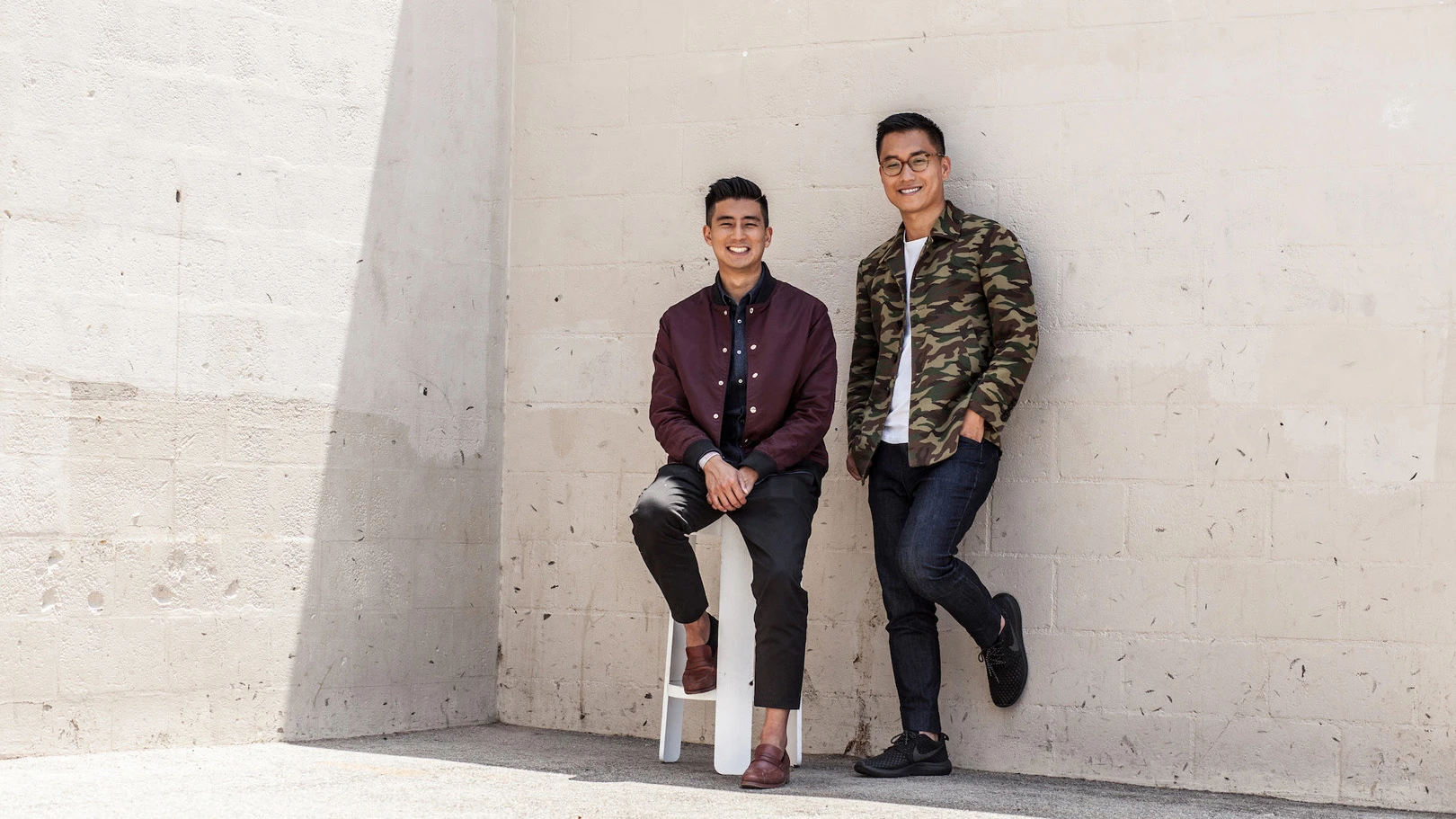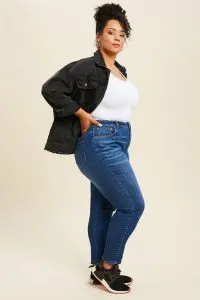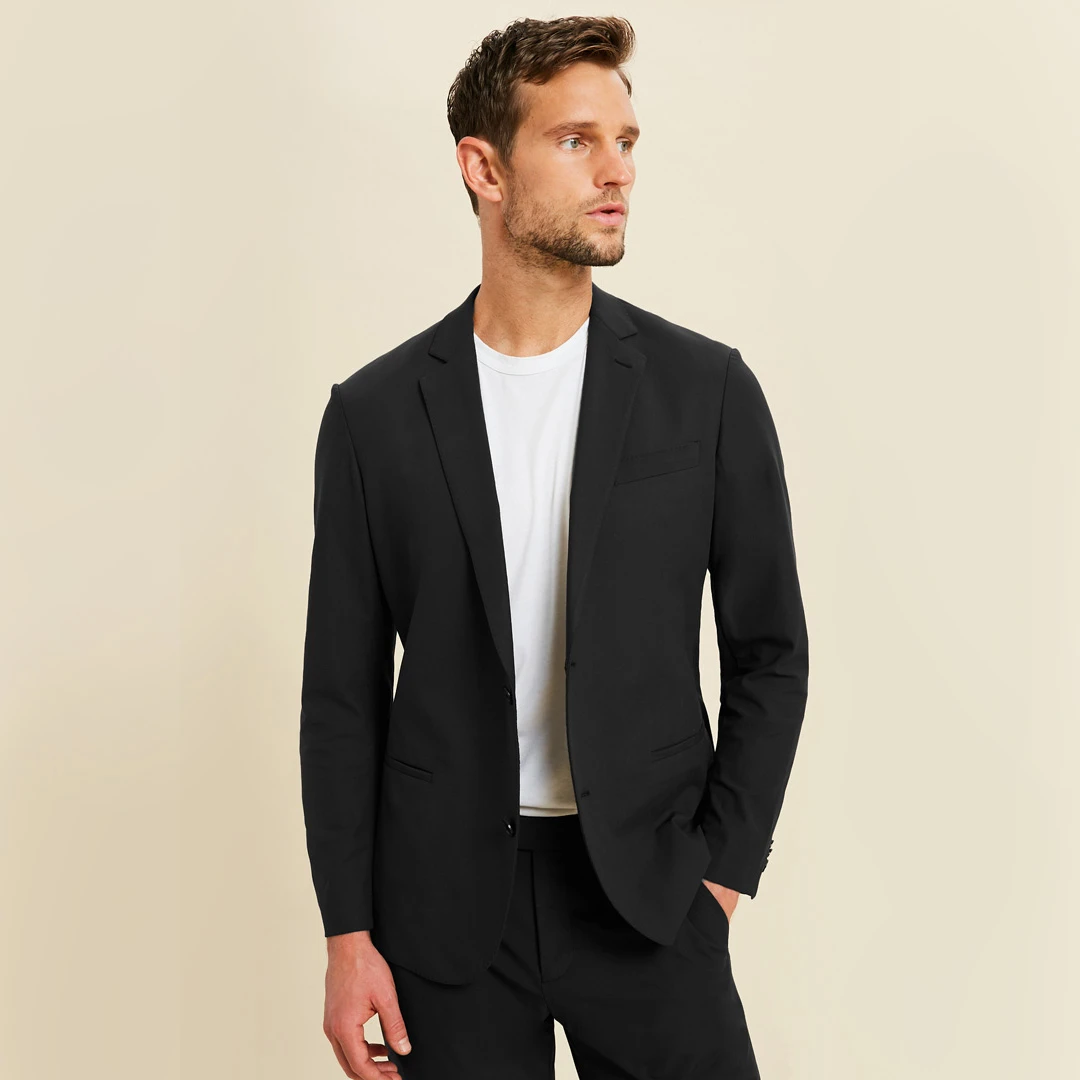In many parts of the world, it’s still common to have your clothes made at the local tailor. Walk through a busy shopping district in Mumbai or Bangalore and you’ll see women picking out fabrics to have a sari blouse made to their exact measurements. In Shanghai or Hong Kong, men have their business suits made from scratch. And yet here in the United States, where the vast majority of clothes are mass-produced and consumers must squeeze into a set of generic sizes, tailored clothing still feels like a luxury.
Cousins Ray Li and Mark Zheng want to bring tailoring into the 21st century with a Los Angeles-based startup called Sene that makes everything from suits to dresses to jeans on demand, to the customer’s exact specifications. Each item ships within two or three weeks after the customer places the order.


Neither Li nor Zheng came from fashion backgrounds. Li worked for a company that helped tech and consumer product companies rebrand, and Zheng worked in the healthcare industry. But in some ways, their backgrounds made a lot of sense when it came to launching Sene. Ultimately, their real challenge wasn’t designing garments, but rather creating a digital platform that would connect expert tailors with consumers who were used to shopping online. They spent several months searching for two factories in China and one in the United States that had good workmanship and would also be willing to partner with a startup like theirs that had an on-demand manufacturing model. “Finding the right tailoring partner took a lot of time,” Li says. “We’re not your average clothing brand: We needed to teach them our different garment designs, but also the many ways that a customer could modify it.”
Today, Sene is best known for its technical suits—those with features typically associated with activewear—that come in both men and women’s styles, in several colors, and cost between $500 and $800. This is comparable with an off-the-rack suit from Brooks Brothers or J.Crew, but significantly cheaper than a bespoke suit, which could cost up to $3,000. Sene has several suit silhouettes, like the more-fitted Melrose and the oversized Laurel, but every part of the design can be customized. “We wanted to limit the number of options because in our early testing, we found that customers were overwhelmed with unlimited options,” Li says. “Instead, we decided to create some classic, popular styles, and let customers customize them to their body.”
For instance, you can have the trouser leg and waist cut high or low, and you can have the suit jacket longer or shorter. All suits are made from materials that are wrinkle-resistant, moisture-wicking, and antimicrobial. According to Li, these suits have been very popular among millennials working in tech, startups, and consulting. “These are people who work around the clock and travel for work frequently,” Li says. “Suits made of technical material were made popular thanks to the athleisure trend, but our brand stands out because customers can get suits that are customized to their preferences.”

Sene has expanded to include outerwear (including $595 trench coats and $225 bomber jackets), $135 button-down shirts, and now $195 jeans. The brand sources fabric from high-quality mills around the world, including the Kaihara denim mill in Japan (famous for recycling and filtering its water to the point that it is drinkable), the same Japanese mill that creates technical fabrics for Lululemon, and the same Italian mill that provides fabrics to Armani. The cofounders were aware that this kind of tailoring is a new concept for many consumers, so to make the process feel less risky, Sene offers a guarantee that if the customer doesn’t like how the suit fits, the brand will have it altered or remade for free within 60 days.

Before launching, Sene had to find a way to accurately capture customer’s measurements online without a tailor on-site to measure them. “Typically, when you go to a tailor shop, the tailor measures you and writes down your measurements on a stray piece of paper,” Li says. “Often, they’re such experts that they just need a few measurements, plus a mental image of your body, to sew an outfit that fits just right.”
Zheng, whose previous expertise involved creating complex valuation models for the healthcare industry, was tasked with finding a way to get information about the customer’s size in a straightforward process that didn’t take too much time or effort. Zheng has created an online fit quiz that involves answering 17 questions and that does not require the customer to measure themselves with measuring tape. The questions include things such as the customer’s height and weight and sizes at other brands. Customers also have the option of sending in a garment that fits them well, from which a tailor will copy the measurements. They can also be fitted in person at Sene’s Los Angeles headquarters. “We wanted to give customers as many options as possible for giving us their sizing information,” Li says. “But it was critical that the process be quick and easy; otherwise it might deter customers from giving us a try.”

After the customer gets the suit in the mail, they can continue to make further adjustments, if necessary, for free. If the customer is based in San Francisco, New York, or Los Angeles, Sene works with a network of local tailors who can come to the customer’s house, pick up the garment, and make the necessary changes. If the customer is outside that network, they can go to a tailor themselves and Sene will reimburse all charges. So far, the brand has found that 39% of the time the garment is perfect and no adjustments are requested at all, and 15% of the time, the garment needs to be remade. In between those figures, customers ask for small adjustments. Li says that since alterations are free, many customers actually like the fit of the garment, but choose to take advantage of the service to make slight adjustments, like tightening the thigh by a quarter of an inch.
Over time, Li believes the accuracy will only get better, since the algorithm Zheng has created improves as more customers use it and the company inputs the adjustments back into the model. So far, the data they’ve collected has already uncovered some interesting things about fit. For instance, it turns out that height plays a much bigger role in driving a person’s blazer length than his or her stated off-the-rack blazer size. In other words, many tall people may have been buying blazers that were several sizes too large so that they would hit the right spot on their torso.
On-demand manufacturing has been growing in the fashion industry, thanks in part to the fact that it is more sustainable, since it does not generate excess or wasted inventory. For instance, Laws of Motion creates a single dress made to order in one of 99 different sizes to better fit a woman’s body. Another brand, Misha Nonoo, carries no inventory but makes pieces as soon as a customer places an order. Sene takes this approach to the next level of complexity by offering more customization options.
Li believes this is how customers are going to want to shop in the future. “Tailoring seemed like a luxury in the United States,” Li says. “But we’re using technology to make it affordable to more people. Our belief is that once customers start buying clothes that fit perfectly and are customized to their personal preferences, it’s hard for them to go back to off-the-rack.”
Recognize your brand’s excellence by applying to this year’s Brands That Matter Awards before the early-rate deadline, May 3.
